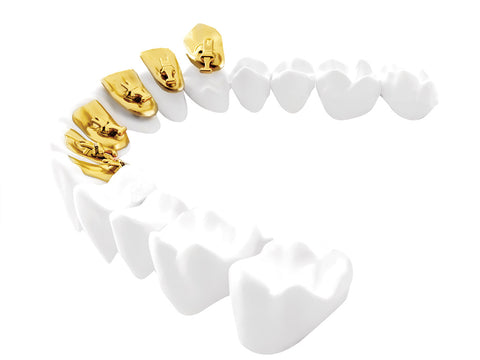What are Lingual braces?

If you’ve been doing some research into which are the best type of braces to choose then we’re sure you’ll have come across lingual braces. By the end of this blog, we hope that you will have developed a good understanding of what lingual braces are and the benefits of choosing them for your orthodontic treatment.
What are Lingual braces?
Lingual braces are a type of fixed appliance that, unlike traditional metal braces, are fixed behind your teeth. They are made up of gold brackets and wires. Similarly to metal braces, the lingual appliance works by applying pressure to your teeth so that they move into the correct position.
Incognito is our chosen brand of lingual braces, which comes in two forms, Incognito and Incognito Lite. Original Incognito braces fit onto all of your teeth, whereas Incognito Lite is only attached to the front 6-8 teeth.
What are the benefits of Lingual braces?
- Lingual braces offer a hidden option for adults or anyone who is unsure on the thought of bulky metal getting in the way,
- Like metal braces, lingual braces are able to straighten most types of malocclusion. This can include; spacing, crowding, twisted teeth and a range of bites,
- They are suitable for all ages including children,
- Similar to Invisalign, lingual braces are custom-made so that they fit your mouth perfectly,
- They offer a very quick treatment time,
- They are less likely to become damaged compared to train-track braces because when eating and biting into food, they are less likely to get caught,
- If you play a musical instrument then you won’t have to worry about the brace getting in the way, or affecting the sound,
- Sometimes, traditional braces can leave a mark on the front of your teeth due to insufficient cleaning, as lingual are on the back, this isn’t the case.
How do I clean Lingual braces?
Cleaning your lingual braces should be pretty simple, all you need to do is brush your teeth as normal. Make sure to use a soft brush to prevent scratching. Brush each tooth individually, making sure to do the gum line, then use dental floss and interdental brushes to get those difficult to reach areas (you can pick up some interdental brushes at our reception). If there’s still bacteria left, mouthwash will fight it!
There you go, everything you ever needed to know about lingual braces, if this helped your decision on which brace to choose, give us a call now!
- Tags: Adult braces brace care braces fixed braces hidden braces incognito Incognito braces Invisalign Invisalign aligners lingual aligners lingual appliance lingual braces orthodontic appliance orthodontic appliances orthodontic treatment Orthodontics straight teeth teeth straightening traditional braces
- Mohammad Malik

